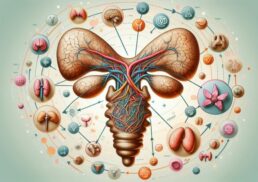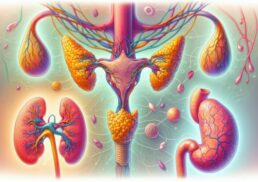Quitting smoking offers numerous advantages quitting smoking that can improve your life almost immediately. From better health and increased energy to financial savings, the benefits are significant and far-reaching. This article will explore the top advantages of quitting smoking, showing you why kicking the habit is one of the best decisions you can make.
Table of Contents
Key Takeaways
Quitting smoking provides immediate and long-term health benefits, including reduced risks of heart disease, cancer, and improved lung and sensory functions.
Smoking cessation enhances mental clarity, energy levels, and overall quality of life, contributing to better mental health and physical comfort.
Quitting smoking leads to substantial financial savings, which can significantly improve one’s quality of life and financial security.
The Top Advantages Quitting Smoking: A Comprehensive Guide

Choosing to quit smoking is a game-changer, signifying the commencement of your path to better health and well-being. The advantages of this choice are both immediate and far-reaching, touching every aspect of your life. Within just 20 minutes of your last cigarette, your body begins a remarkable healing process that continues for years to come.
The rapid health benefits that follow cessation are among the most notable aspects of quitting smoking. Here are some of the benefits you can expect:
Within the first hour, your heart rate and blood pressure start to normalize, setting the stage for improved cardiovascular health.
As the hours pass, the excess carbon monoxide in your blood begins to clear, allowing your body to increase its oxygen levels and function more efficiently.
In the days, weeks, and months that follow, your body continues to repair and rejuvenate itself.
These initial changes are just the tip of the iceberg when it comes to the health benefits of quitting smoking.
The enduring benefits of smoking cessation are just as remarkable. Your risk of life-threatening health problems drops dramatically, including significant reductions in the likelihood of developing lung cancer, heart disease, and other smoking-related illnesses. Moreover, the benefits extend beyond physical health. Many former smokers report improved energy levels, better mental clarity, and a renewed sense of taste and smell. The financial savings from quitting can be substantial, offering opportunities for improved quality of life and financial security. As we further examine these benefits, you’ll realize the transformative power of the decision to quit smoking, enabling you to seize control of your health and destiny.
Introduction
Starting your smoke-free journey is a major milestone in enhancing your overall health and life quality. Regardless of your age or how long you’ve been smoking, the benefits of quitting are substantial and begin almost immediately. This comprehensive guide will walk you through the myriad advantages of leaving cigarettes behind, from the rapid improvements in your body’s functions to the long-term protection against serious diseases.
As we explore the benefits of quitting smoking, you’ll discover how this decision can dramatically reduce your risk of various diseases, including cardiovascular problems, chronic obstructive pulmonary disease (COPD), and multiple types of cancer. The positive changes that occur in your body are not just theoretical; they’re tangible improvements that you’ll experience in your daily life. From easier breathing to increased energy levels, the advantages of quitting smoking touch every aspect of your health and well-being. Let’s discover the instant health benefits awaiting you once you decide to quit.
Immediate Health Benefits
The moment you extinguish your final cigarette, your body initiates an extraordinary recovery process. Within just 20 minutes, you start to experience the first of many health benefits that will continue to accumulate over time. Your heart rate and blood pressure will quickly return to normal. This is one of the most immediate changes you’ll notice. This rapid improvement in cardiovascular function is your body’s first step towards reducing the strain that smoking places on your heart and circulatory system.
As the hours pass, the positive changes continue to unfold. Your blood circulation begins to improve, particularly to your heart and muscles. This enhanced blood flow not only makes physical activities easier but also contributes to better overall health. Additionally, within the first day, the carbon monoxide levels in your blood start to drop, allowing your body to increase its oxygen levels. This boost in oxygen not only helps your vital organs function more efficiently but also contributes to increased energy levels and mental clarity. These instant benefits mark the start of your body’s path to improved health, paving the way for the enduring advantages that ensue, as the blood drops its carbon monoxide levels.
Enhanced Lung Function

The enhancement in lung function is among the most substantial and discernible benefits of quitting smoking. From the moment you stop smoking, your lungs begin a healing process that continues for months and even years. Within the first 48 hours after quitting, your lungs start to clear out mucus and other debris left behind by cigarette smoke. This cleansing process is the first step towards healthier, more efficient lungs.
As you progress through the first few weeks of being smoke-free, you’ll likely notice that breathing becomes easier and breath decrease is less frequent. This is because:
The bronchial tubes in your lungs begin to relax and open up, improving the exchange of oxygen and carbon dioxide.
By the two-month mark, lung function can improve by as much as 30%, making physical activities noticeably easier.
This enhancement in lung capacity not only makes everyday tasks less strenuous but also contributes to an overall sense of increased energy and well-being.
The enduring benefits for your respiratory health are further striking. Between three to nine months after quitting, your lung function can increase by up to 10%, further reducing shortness of breath and improving your ability to handle physical exertion. For those with existing respiratory conditions like chronic obstructive pulmonary disease (COPD), quitting smoking can slow the progression of the disease and preserve lung function. Even if you’ve been a long-time smoker, it’s never too late to experience these benefits. Your lungs have an incredible capacity to heal, and by quitting smoking, you’re giving them the chance to recover and function at their best.
Reduced Risk of Heart Disease

The considerable reduction in heart disease risk is one of the most convincing reasons to quit smoking. The impact on cardiovascular health begins almost immediately after your last cigarette and continues to improve over time. Within just one year of quitting, your risk of heart attack and coronary heart disease drops by half compared to that of a continuing smoker. This dramatic decrease is a testament to the body’s remarkable ability to heal once it’s no longer exposed to the harmful effects of tobacco smoke.
The advantages for your heart health continue to mount in the years post-smoking cessation. As your blood pressure normalizes and your blood becomes less likely to form dangerous clots, the strain on your cardiovascular system decreases significantly. This reduction in cardiovascular stress not only lowers your risk of heart attack but also decreases the likelihood of stroke and other circulatory problems. For those who have already experienced a heart attack, quitting smoking can reduce the risk of a second attack by an impressive 50%.
Perhaps most encouragingly, after 15 years of being smoke-free, your risk of heart disease becomes similar to that of a person who has never smoked. This long-term benefit underscores the importance of quitting smoking at any age. It’s worth noting that about 20% of deaths from heart disease in the United States are directly related to smoking, highlighting the critical role that smoking cessation plays in cardiovascular health. By choosing to quit, you’re taking a powerful step towards protecting your heart and ensuring a healthier future.
Lower Cancer Risks
The considerable reduction in cancer risk is one of the most important long-term benefits of quitting smoking. While the process is gradual, the impact on your health is profound. Ten years after quitting, your risk of lung cancer drops to about half that of a person who continues to smoke. This reduction is particularly noteworthy given that lung cancer is one of the most deadly forms of cancer, and smoking is its leading cause.
The benefits of quitting extend beyond lung cancer. Within just five years of stopping smoking, your risk of cancers of the mouth and esophagus is cut in half. This rapid decrease in risk highlights the body’s remarkable ability to heal and repair damage caused by years of smoking. Additionally, quitting smoking significantly reduces the risk of other types of cancer, including bladder, cervical cancer, and kidney cancers.
It’s important to understand that the risk reduction for cancer is cumulative and continues to improve over time. The longer you stay smoke-free, the lower your cancer risk becomes. For perspective, smokers have a 2 to 10 times higher risk of developing cancer compared to non-smokers, depending on the amount and duration of smoking. By quitting, you’re actively working to bring your cancer risk closer to that of a non-smoker. This gradual but significant reduction in cancer risk is one of the most compelling reasons to quit smoking, offering a powerful motivation to stay smoke-free for life.
Improved Sensory Perception
The augmentation of your senses, particularly taste and smell, is one of the most instant and enjoyable benefits of quitting smoking. Within just 48 hours of your last cigarette, your nerve endings begin to heal, initiating a process that will significantly improve your sensory perception. This rapid recovery is a testament to the body’s resilience and its ability to bounce back once freed from the harmful effects of tobacco.
As you progress through your smoke-free journey, you’ll likely notice that food tastes better and smells become more vivid. By the second day without cigarettes, your sense of taste becomes more acute, allowing you to enjoy the subtle flavors in your meals that you might have been missing. Simultaneously, your sense of smell improves, making the world around you seem fresher and more vibrant. This enhancement in sensory perception is not just a pleasant side effect; it’s a clear sign that your body is healing from the damage caused by smoking. The improved ability to taste and smell can also contribute to a better appetite and a renewed enjoyment of eating, potentially leading to improved nutrition and overall health.
Better Respiratory Health
Stopping smoking triggers a cascade of positive changes in your respiratory system, resulting in significantly enhanced breathing and overall lung health. Within the first week of being smoke-free, you may notice that your bronchial tubes begin to relax, making breathing easier and increasing your energy levels. This initial improvement is just the beginning of a long-term healing process for your lungs.
As you continue your smoke-free journey, you’ll likely experience a decrease in respiratory symptoms such as coughing, wheezing, and sputum production. These improvements are not just subjective feelings; they represent real, measurable enhancements in your lung function. For those with existing respiratory conditions like asthma, quitting smoking can lead to improved lung function and reduced symptoms, making it easier to manage the condition.
Perhaps one of the most significant long-term benefits is the reduced risk of developing chronic obstructive pulmonary disease (COPD). For individuals who already have COPD, quitting smoking can slow the progression of the disease and help preserve lung function over time. Additionally, stopping smoking lowers your risk of respiratory infections like bronchitis and pneumonia, further contributing to better overall respiratory health. These improvements in respiratory function not only make daily activities easier but also contribute to a higher quality of life and increased longevity.
Enhanced Immune System
An often overlooked but important benefit of quitting smoking is the beneficial effect it has on your immune system. As you leave cigarettes behind, your body’s natural defense mechanisms begin to strengthen, making you less susceptible to illnesses and infections. This enhancement of your immune function is a crucial step towards better overall health and well-being.
The process of immune system recovery starts almost immediately after you quit smoking. Your body begins to restore normal white blood cell counts, reducing the constant defensive state that smoking induces. As your exposure to harmful substances like tar and nicotine decreases, your immune system can focus on its primary job of protecting you from genuine threats. This strengthened immune response means that you’re not only less likely to catch common colds and flu, but your body is also better equipped to fight off more serious infections.
The improved immune function is yet another way that quitting smoking contributes to a healthier, more resilient you.
Learn more, visit 8 Ways Your Health Improves When You Quit Smoking.
Positive Impact on Blood Flow
The beneficial effect on your blood flow is one of the most substantial and immediate benefits of quitting smoking. Within just 2 to 12 weeks of stopping, your blood circulation improves noticeably. This enhancement in circulation has far-reaching effects on your overall health and well-being, making physical activities like walking and running easier and more enjoyable.
The improvements in blood flow go beyond just making exercise easier. When you quit smoking, your blood becomes thinner and less likely to form dangerous clots. This reduction in clot risk, combined with improved cholesterol levels, slows the buildup of new fatty deposits in your arteries. These changes significantly reduce your risk of heart disease and stroke, two of the leading causes of death among smokers.
Moreover, the positive impact on blood flow extends to wound healing and overall tissue health. Improved circulation means that essential nutrients and oxygen are delivered more efficiently to all parts of your body. This enhanced nutrient delivery is particularly beneficial for wound healing, helping your body repair itself more quickly and effectively.
By quitting smoking, you’re not just improving your cardiovascular health; you’re giving your entire body the blood flow it needs to function at its best.
Financial Savings
While the health benefits of quitting smoking are indisputably the most important, the financial gains are equally convincing and often offer immediate, tangible motivation. Consider this: if you smoke a pack a day, quitting can save you at least $45 per week, based on the 2018 national average price. That’s a substantial $2,340 per year that could be redirected towards improving your quality of life, paying off debts, or saving for the future.
The long-term financial impact is even more staggering. Over a decade, smoking a pack of cigarettes per day can cost over $130,000. Imagine what you could do with that money – it could be a significant down payment on a house, fund your children’s education, or boost your retirement savings. Many former smokers report using their savings from quitting to buy items they couldn’t previously afford, such as an e-reader, a custom guitar, or to plan a dream vacation. These financial benefits not only improve your immediate quality of life but also provide a powerful motivation to stay smoke-free during challenging times.
Improved Quality of Life
Stopping smoking doesn’t only boost your physical health; it remarkably elevates your overall life quality. One of the most notable improvements is in mental health. Stopping smoking has been shown to reduce anxiety, depression, and stress levels. Contrary to the common misconception that smoking relieves stress, quitting actually leads to a more positive mood and improved mental well-being. This mental health boost can have a ripple effect, positively impacting various aspects of your life, from work performance to personal relationships.
The benefits of quitting smoking extend to your physical comfort and intimate life as well. Here are some ways quitting smoking can improve your overall well-being:
Improved blood flow can enhance sensitivity and potentially improve sexual function.
Increased energy levels and better physical endurance can lead to a more active and fulfilling lifestyle.
Improved physical and mental health allows you to support your loved ones better.
You’ll be able to engage more fully in activities with family and friends, without the need for smoke breaks or concerns about secondhand smoke.
The overall improvement in quality of life, especially after quitting cigarette smoking, is often cited by former smokers as one of the most rewarding aspects of quitting.
Long-Term Health Benefits
The enduring health benefits of quitting smoking are significant and extensive. Perhaps the most significant is the dramatic reduction in the risk of life-threatening health problems such as heart disease, lung disease, and various forms of cancer. By addressing these health risks, the benefits of quitting smoking become even more apparent. This reduction in risk isn’t just a small improvement; it’s a substantial change that can add years to your life. In fact, quitting smoking can add as much as 10 years to your life expectancy. This extra decade represents countless opportunities to enjoy life, spend time with loved ones, and pursue your passions.
Beyond extending your lifespan, quitting smoking also improves the quality of those additional years. The development of subclinical atherosclerosis (the buildup of plaque in arteries) is reduced and its progression slowed over time after quitting. This means a lower risk of heart attacks, strokes, and other cardiovascular problems as you age. Additionally, quitting smoking leads to better reproductive health, benefiting pregnant individuals and their babies with healthier birth weights.
These long-term benefits underscore the fact that it’s never too late to quit smoking. Whether you’ve been smoking for a few years or several decades, your body will thank you for quitting, rewarding you with improved health and vitality for years to come.
Support Systems for Quitting
Starting your journey to quit smoking is a major step, and having the right support can be crucial. Fortunately, there are numerous resources available to help you through this process. Some options include:
Stop smoking programs offered by hospitals, health departments, community centers, work sites, and national organizations
Online support groups and forums
Nicotine replacement therapy, such as patches, gum, or lozenges
Prescription medications that can help reduce cravings and withdrawal symptoms
Counseling or therapy to address the psychological aspects of quitting
These programs often combine multiple approaches for chronic disease prevention and disease control, providing ongoing support to help individuals stay tobacco-free.
One of the most accessible forms of support is telephone-based services, such as quitlines provided by the National Cancer Institute and the American Cancer Society. These services offer counseling and support to help design a stop smoking program tailored to your individual needs.
For those who prefer a more personal touch, support groups like Nicotine Anonymous provide a sense of community and accountability. Additionally, many health care providers, health insurance plans, employers, and local health departments offer smoking cessation programs. With options ranging from nicotine replacement therapy to counseling and even e-cigarette use, there’s a support system out there that can work for you.
Keep in mind, preparation for smoking cessation, devising your quitting strategy, and seeking external support are vital steps for managing the process of successfully quitting smoking.
Summary
As we’ve explored throughout this comprehensive guide, the benefits of quitting smoking are both immediate and long-lasting, touching every aspect of your health and well-being. From the rapid improvements in heart rate and blood pressure within minutes of your last cigarette to the significant reduction in cancer and heart disease risk over the years, the positive changes are truly transformative. Enhanced lung function, improved sensory perception, stronger immune system, and better overall quality of life await those who make the courageous decision to quit. The financial savings and increased life expectancy are icing on the cake, offering you more resources and time to enjoy a healthier, smoke-free life. Remember, it’s never too late to quit, and with the wide array of support systems available, you don’t have to face this challenge alone. Take the first step today towards a healthier, happier you – your future self will thank you for it.
Frequently Asked Questions
How quickly can I expect to see health benefits after quitting smoking?
You can expect to see health benefits almost immediately after quitting smoking, with changes like lowered heart rate and blood pressure in just 20 minutes and normalized carbon monoxide levels within 12 hours. In the following weeks and months, you’ll notice further improvements in circulation, lung function, and energy levels.
Will quitting smoking help me if I’ve been a heavy smoker for many years?
Yes, quitting smoking will still significantly improve your health and reduce your risk of smoking-related diseases, even after many years of heavy smoking.
How can I manage nicotine cravings and withdrawal symptoms?
To manage nicotine cravings and withdrawal symptoms, consider using nicotine replacement therapy, staying hydrated, exercising regularly, finding healthy distractions, and seeking support from groups or counseling. These strategies can be effective in helping you cope with cravings and withdrawal symptoms.
Will I gain weight if I quit smoking?
It’s possible to gain weight when quitting smoking, but it’s not guaranteed. The health benefits of quitting smoking far outweigh the potential for minor weight gain. Focus on healthy eating habits and regular exercise to manage your weight.
How long does it take for the risk of lung cancer to decrease after quitting smoking?
Quitting smoking immediately reduces the risk of lung cancer. After 10 years of being smoke-free, the risk drops to about half that of a current smoker, and continues to decrease the longer you stay smoke-free.









